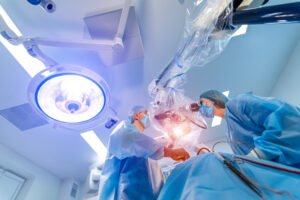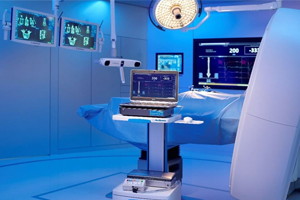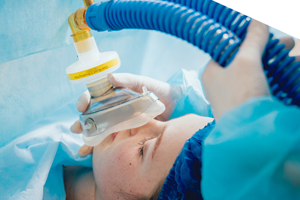
Anaesthesiology
Anaesthesia Neurosurgery

Dr Yogesh K Chawla
Hepatology
Padma Shri & BC Roy Awardee Recipient
M.B.B.S M.D. (Internal Medicine), D.M. (Gastroenterology), FAMS
Chairman Academics and Professor Emeritus Kalinga Institute of Medical Science (KIMS), Bhubaneshwar
Member Institute Body AIIMS Bhubaneshwar
Chairman Academic Committee JIPMER Pondicherry
Chairman Academic Committee IMS BHU
Member Institute Body JSS Science & Technology University, Mysuru
Number of paper published: 475
National: 192
International: 283
Chapters in Text Book: 27
Interest: Liver Transplantation, ALF, ACLF
All Day 10:00am -7:00pm.
Just Prior Appointment by Call.

Dr Harmeet Singh Dheer
Welcome to Landmark Hospital Anaesthesiology
Anaesthesiology plays a crucial role in neurosurgery as it ensures the comfort and safety of the patient during the procedure. It involves administering medications to induce unconsciousness, eliminate pain, and maintain physiological stability throughout the surgery. Here are some key points about anesthesia in neurosurgery: Types of Anaesthesia There are different types of anesthesia used in neurosurgery, including general anesthesia, regional anaesthesia, and monitored anaesthesia care (MAC). The choice of anaesthesia depends on various factors such as the patient’s medical condition, the type and duration of the surgery, and the surgeon’s preference. General Anaesthesia General anaesthesia is commonly used in neurosurgery. It involves the administration of medications that induce a state of deep sleep and complete unconsciousness. The anaesthesiologist monitors the patient’s vital signs, such as heart rate, blood pressure, and oxygen levels, throughout the procedure. The patient is usually intubated and receives a combination of intravenous medications and inhaled anaesthetics.

Dr. Harmeet Singh Dheer
MBBS, MD HOD Anaesthesia

Dr. Suman Sahu
MBBS, MD Anaesthesia

Welcome to Landmark Hospital Anaesthesiology
Services We Offer:




Patient Safety


Why Choose Landmark Hospital Department of Anaesthesia for Neurosurgery?






Why Choose Landmark Hospital's Department of Anesthesia for Neurosurgery?
- Preoperative Assessment
- Anesthesia Management
- Pain Management
- Intraoperative Monitoring
- Postoperative Care
- Collaborative Approach

At Landmark Hospital, we understand the critical role that anaesthesia plays in neurosurgical procedures. Our dedicated team of anaesthesiologists specializes in providing safe and effective anaesthesia care for patients undergoing neurosurgical interventions. We are committed to ensuring your comfort, safety, and well-being throughout the surgical process. Expert Anaesthesiologists Our team of anaesthesiologists has specialized training and expertise in providing anaesthesia for neurosurgical procedures. State-of-the-Art Facilities Landmark Hospital is equipped with advanced anaesthesia equipment and monitoring technology to ensure your safety and comfort. Patient Safety We adhere to strict safety protocols and guidelines to minimize the risks associated with anesthesia and ensure your well-being. Individualized Care: We understand that each patient is unique, and we tailor our anaesthesia approach to your specific needs and medical condition. Compassionate Care We prioritize your comfort, satisfaction, and peace of mind throughout your neurosurgical journey. At Landmark Hospital Department of Anaesthesia for Neurosurgery, we are committed to providing exceptional anaesthesia care for patients undergoing neurosurgical procedures. Contact us today to learn more about our services or to schedule a consultation. Intraoperative Monitoring During your neurosurgical procedure, our anaesthesiologists closely monitor your vital signs, including heart rate, blood pressure, oxygen levels, and brain activity. This monitoring allows us to respond promptly to any changes and ensure your well-being throughout the surgery. Postoperative Care After your neurosurgical procedure, our anaesthesiologists will continue to provide postoperative care to manage pain and monitor your recovery. We will work closely with the surgical team to ensure a smooth transition to the post-anaesthesia care unit (PACU) or intensive care unit (ICU), if necessary. Collaborative Approach Our anaesthesiologists collaborate closely with the neurosurgical team, including neurosurgeons, nurses, and other healthcare professionals, to provide comprehensive and coordinated care.
